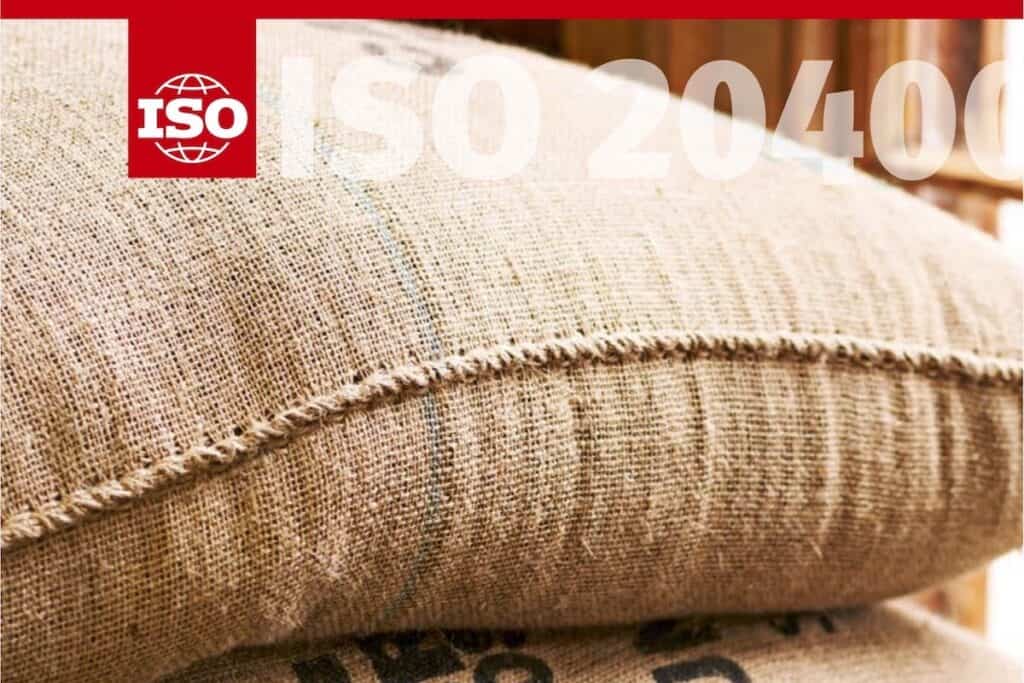
In this SustMeme Guest Post, Shaun McCarthy OBE, founder of the not-for-profit knowledge platform ISO20400.org asks: With interest up, but attainment still low, what do we need to kick-on to the next level?
SM: The global standard for sustainable procurement practice was confirmed by the International Organisation for Standardisation (ISO), in 2022, after five years of use.
This means it will continue unchanged for the next five years.
I agree with the recommendation and lobbied strongly for this positive outcome, along with my colleagues on the ISO20400.org Steering Group.
Our logic was to invest our time in doing sustainable procurement and promoting good practice, rather than spending endless hours picking over the minutiae of words in the standard.
In short, our mantra was: If it ain’t broke, don’t fix it!
However, whilst having a standard is great, the question remains: Is it really making a difference?
Make assessment simple
I have observed a growing uptake of the standard around the world but there is still much to be done.
The good news is that the simple self-assessment tool provided on www.iso20400.org has had over 670 uses since the standard was published in 2019
The bad news is that the trends in level of attainment are depressingly flat.
This may, of course, be because more organisations are using the tool at the start of their journeys, but we still need to kick-on to the next level. So, what do we need to achieve this?
Firstly, we need better and simpler guidance to support the standard. We are working on adding audio and text guidance to support our self-assessment tool. Users will get a friendly voice throughout the self-assessment providing helpful hints and tips depending on their score.
The tool will also feature a function that enables the user to download a draft action plan, based on their score. This should provide support to the growing band of people given sustainable procurement responsibilities for the first time in their career, helping them get started.
ESG: Follow the money!
Secondly, more engagement is needed with the investment and finance community.
Investors are increasingly concerned about environmental, social and governance criteria and performance (ESG), with many threatening to vote against boards, or withdraw their shareholdings from businesses that do not have a credible story on issues and concerns such as climate change and human rights, for example.
However, rating agencies and investors are doing very little to drive the agenda through supply chains, where many of the risks and opportunities really lie.
The world already has a well-proven standard in ISO 20400, designed to address exactly this issue; and it is time for the investment community to insist that companies follow it.
A duty for the public sector
Back in 2005, I was part of the UK Sustainable Procurement Task Force, which published the ground-breaking paper, Procuring the Future, in 2006. At the time, my friend and collaborator Jonathon Porritt said something that stays with me today: “The public sector has no right to procure un-sustainably.”
This is as true today as it was 18 years ago.
Governments around the world need to start insisting that those organisations that spend money on behalf of their taxpayers align their procurement practices to the standard.
However, of the 43 countries of the 150-plus membership of the ISO federation that participated in developing the standard, the depressing fact is that only 18 have adopted it.
National Standards Bodies around the world urgently need to adopt the standard, in order to give it some formal credibility in their countries, lending it their weight and influence.
Prepare for change to come
Although the decision to confirm was the right result this time, by 2027 things will have changed so much, that revision is inevitable. So, we need to start thinking now about what changes will be needed.
In readiness and preparation, we shall be convening some thought leadership amongst our Steering Group to start to inform the debate over the course of the next five years. There is work to be done.
Meantime, on a positive note, the need and the demand for the standard will only grow and spread.
As organisations increasingly realise that they cannot deliver challenging sustainability goals without taking their supply chains with them, I therefore look forward to the standard making a real difference over the next five years.

After a distinguished career in industry, Shaun McCarthy OBE founded Action Sustainability in 2006, where he has served numerous clients as a consultant. Amongst other roles, he also Chairs the Supply Chain Sustainability School, launched over 10 years ago in 2012, plus founded the not-for-profit knowledge platform ISO20400.org, in 2017. As a recognised leader in the field of sustainable business, Shaun was awarded an OBE for services to sustainability and his work around the London 2012 Olympics, by Her Majesty the Queen in her 2013 Birthday Honours. He is pictured here holding a framed certificate on behalf of the Supply Chain Sustainability School, to commemorate the receipt of the Queen’s Award for Enterprise, in Sustainable Development, in 2022.
Further Reading:
- More on the ISO 20400: 2017 Standard for Sustainable Procurement;
- More about influential 2006 paper Procuring the Future;
- More about the not-for-profit free-access platform ISO20400.org;
- More about the leading sustainable business and supply-chain consultancy Action Sustainability;
- Also on SustMeme, Supply Chain: ESG strategies mission-critical for sustainability;
- Also on SustMeme, ESG ups the stakes for supply-chain risk and reward;
- Also on SustMeme, Century up for Supply Chain Sustainability School!
- Also on SustMeme, Sustainability win-win: ‘Future of Procurement’ in The Times;
- Also on SustMeme, Responsible Sourcing: Who cares wins?
You can check out the full archive of past Guest Blog posts here.
Would you like to Guest Blog for SustMeme? For more info, click here.
SUSTMEME: Get the Susty Story Straight!






